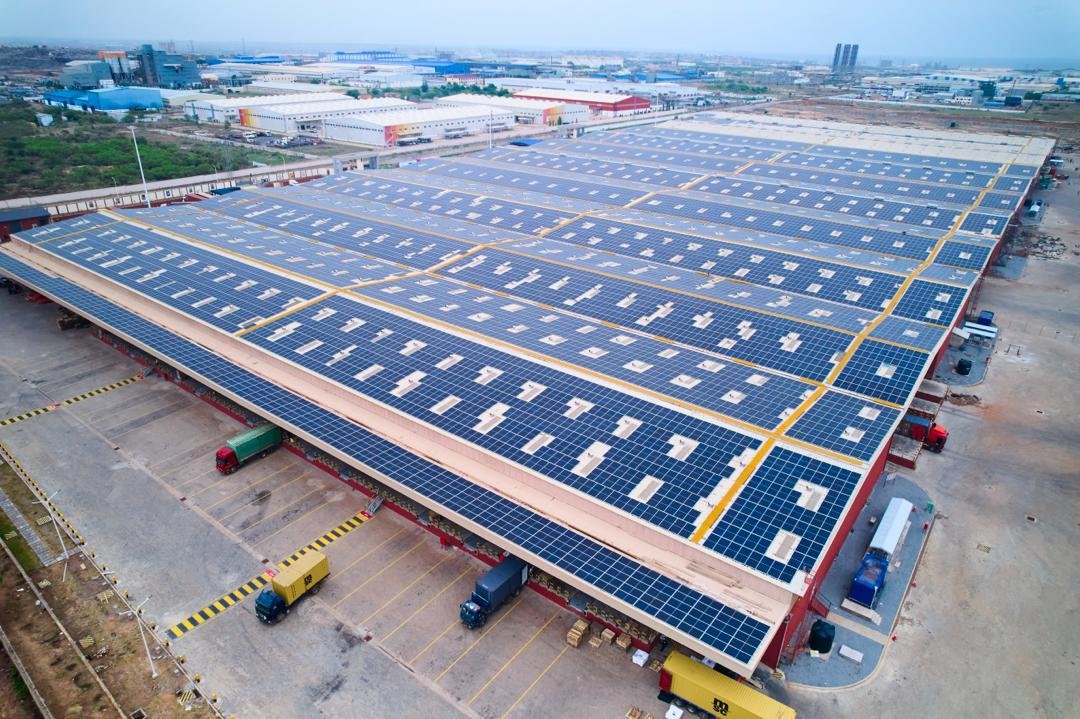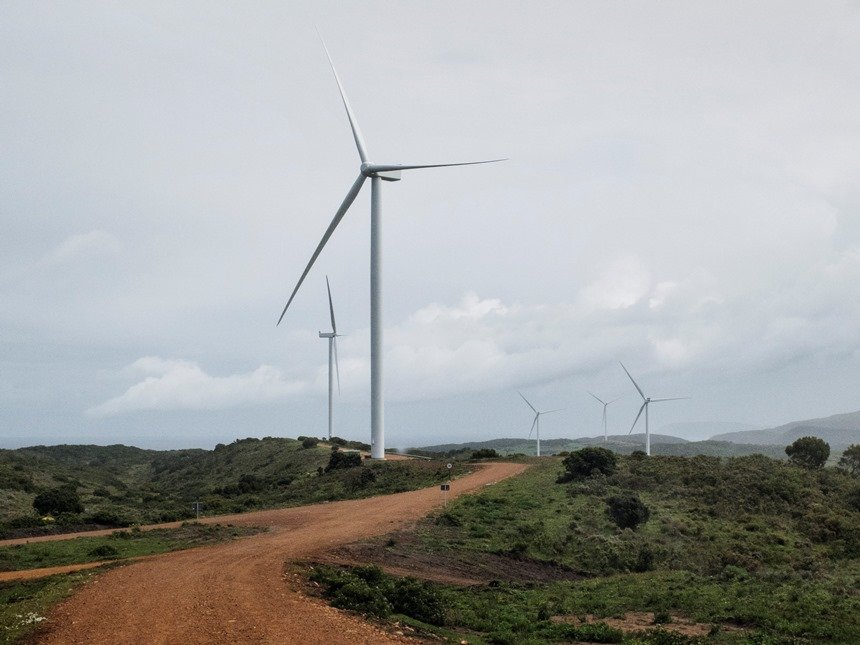
Renewable Energy Infrastructure Development
Ghana
Tap into renewable energy investment schemes
-
Solar Energy: Harnessing the Power of the Sun
Solar energy is rapidly expanding in Ghana, thanks to abundant sunlight and government incentives. Solar power solutions, from panels to storage, offer a sustainable, cost-effective way to meet growing energy demands.
-
Wind Energy: Tapping into Coastal Winds
Ghana's coastal regions present ideal conditions for wind energy production. With an increasing focus on sustainable power, investments in wind turbines and related technology promise significant potential for growth and energy independence.
-
Hydropower: Power from Rivers and Streams
Ghana has a long history of hydropower, and ongoing investments continue to harness its river systems for clean, renewable energy. Hydropower remains a reliable and abundant energy source, supporting national growth.

International Joint Ventures in Renewable Energy in Ghana
Unlocking Lucrative Opportunities in Solar, Wind, and Hydropower Systems
As Ghana’s renewable energy sector continues to grow, international joint ventures (JVs) present a prime opportunity for both local and global businesses to collaborate in installing and expanding solar, wind, and hydropower systems. Ghana's strategic location, supportive government policies, and increasing demand for clean energy make it an ideal destination for international partnerships looking to make a lasting impact on the energy landscape.
Why Consider Joint Ventures in Ghana’s Renewable Energy Market?
Access to Capital and Advanced Technology
International partners bring vital financial resources and cutting-edge technologies that are essential for large-scale renewable energy projects. This allows businesses to overcome barriers such as high upfront capital costs and technical expertise, ensuring efficient and effective project implementation.Local Knowledge Meets Global Expertise
Successful joint ventures combine local insights with international best practices, enabling faster and more efficient project execution. Ghana’s growing renewable energy market benefits from such collaborations, ensuring that installations, whether solar, wind, or hydro, are integrated seamlessly into the existing infrastructure.Access to Regional Markets
With Ghana's participation in the African Continental Free Trade Area (AfCFTA), joint ventures gain access to a broader market, allowing renewable energy products and technologies to be exported across the region. This makes Ghana a strategic hub for companies looking to tap into the wider African energy market.
Ghana’s Renewable Energy Market: A Growing Opportunity
Solar Energy
Ghana’s abundant sunlight, combined with government incentives for solar projects, makes it a prime location for solar installations. International partnerships can benefit from the country’s rapid adoption of solar energy, tapping into both domestic demand and regional export opportunities.Wind Energy
The coastal areas of Ghana offer substantial wind energy potential. Joint ventures focusing on the installation of wind turbines will benefit from Ghana's favorable wind conditions, contributing to both the local energy mix and regional renewable energy goals.Hydropower
Ghana's extensive river systems provide an ideal environment for hydropower generation. Joint ventures focused on hydro installations can help meet the country’s growing energy needs while contributing to regional power generation capacity.
Successful Case Studies of International Collaboration
BXC Solar Power Station
A 20 MW solar facility developed by Beijing Xiaocheng Company in Ghana is a prime example of a successful international joint venture in the solar energy sector. This partnership demonstrates the viability and growth potential of the renewable energy market in Ghana.Yingli Namene West Africa Limited
A joint venture between China’s Yingli Green Energy and Namene Energy International, aimed at developing 100 MW of utility-scale solar projects across Ghana and neighbouring countries, showcases the immense potential for international partnerships in Ghana’s renewable energy sector.
Regulatory Environment for International Joint Ventures
Ghana’s Renewable Energy Act, along with the National Energy Transition Plan, provides a solid regulatory framework to support international investments in renewable energy. The government offers incentives such as tax exemptions, customs duty waivers, and minimum local equity participation to encourage foreign businesses to invest in the sector. These policies ensure that joint ventures can operate smoothly and profitably while contributing to the country’s sustainable energy development.
Join Us in Shaping the Future of Energy
International joint ventures in Ghana's renewable energy market offer significant opportunities for growth and impact. With its strategic location, government incentives, and growing demand for clean energy, Ghana is an ideal destination for businesses looking to invest in solar, wind, and hydropower systems. By partnering with local entities, international businesses can help accelerate Ghana's energy transition while tapping into a rapidly expanding market.
Take the next step towards creating a sustainable energy future. Explore the possibilities of joint ventures in Ghana’s renewable energy sector today.
Renewable Energy Components (Solar, Wind, Hydropower) – Ghana
Renewable Energy Components (Solar, Wind, Hydropower) – Ghana
Hotspot: Tema Free Zones Enclave
Ghana’s renewable energy sector, especially in solar, wind, and hydropower components, is rapidly expanding in response to the country’s ambitious energy transition goals and the growing global demand for clean energy. Positioned at the heart of West Africa’s energy market, Ghana is becoming a key player in the renewable energy revolution, offering investors a unique and profitable opportunity. The Tema Free Zones Enclave stands out as a prime investment location for businesses looking to capitalize on this dynamic sector.
Why Ghana’s Renewable Energy Sector?
Government Commitment to Renewable Energy
Ghana has shown a strong commitment to expanding its renewable energy capacity through both policy and action. The government’s Renewable Energy Master Plan (REMP) aims to meet 10% of the country’s electricity needs from renewable sources by 2030. This ambition is supported by favourable policies such as feed-in tariffs, tax exemptions for renewable energy projects, and incentives for local manufacturing of renewable energy components.Strategic Location: Tema Free Zones Enclave
The Tema Free Zones Enclave offers a strategic location for renewable energy businesses, benefiting from its proximity to Tema Port, one of the busiest ports in West Africa. This provides seamless access to both regional and international markets, allowing businesses to efficiently import raw materials and export finished renewable energy products. The Enclave’s infrastructure—well-developed roads, reliable power, and telecommunications—further enhances its appeal as an investment hub for renewable energy manufacturers.Established Infrastructure & Industrial Ecosystem
Ghana has built a solid industrial ecosystem for energy, especially around industrial zones like the Tema Free Zones Enclave. The availability of a skilled workforce, established industrial parks, and access to essential utilities like water and electricity makes it easier to scale operations and reduce production and logistics costs.Export Incentives and Trade Agreements
Ghana’s membership in regional trade agreements, such as the African Continental Free Trade Area (AfCFTA), enhances market access. Additionally, the Ghana Free Zones Authority offers attractive export incentives for renewable energy producers, including exemptions from taxes and duties on exports. This gives businesses in the Tema Free Zones Enclave a competitive edge in accessing renewable energy markets across Africa and beyond.
The Investment Opportunity: Solar, Wind, and Hydropower Components
Ghana is strategically positioned to lead the production of solar panels, wind turbines, and hydropower components, thanks to its abundant natural resources and supportive government policies. With solar radiation levels among the highest in the world and excellent wind conditions along the coast, Ghana is an ideal location for manufacturing renewable energy components. The country’s hydropower potential, combined with ongoing investments, creates a unique opportunity for businesses involved in the production of hydroelectric equipment.
Solar Energy Components
Ghana’s solar sector is growing rapidly, with solar photovoltaic (PV) capacity steadily increasing. The government’s support for solar energy through feed-in tariffs and other incentives makes it an attractive opportunity for solar component manufacturers. There is a growing demand for solar panels, inverters, and storage solutions, both within Ghana and throughout West Africa.Wind Energy Components
The wind energy sector in Ghana shows great promise, particularly for offshore wind projects along the coast. Though still in its early stages, Ghana’s wind energy potential offers significant growth, making it an opportune time to invest in wind turbines, generators, and other wind-related components.Hydropower Components
Hydropower has long been a key part of Ghana’s energy mix, with significant infrastructure in place, such as the Akosombo Dam. Ongoing investments in expanding hydropower capacity present opportunities for businesses to supply turbines, generators, and other equipment. Ghana’s extensive river systems provide an ideal foundation for further development in this reliable and renewable energy sector.
ROI Projection: 18–22% Over 5 Years
Investing in renewable energy components in Ghana’s Tema Free Zones Enclave is projected to deliver an attractive return on investment (ROI) of 18–22% over five years. This strong ROI is driven by:
Rising Demand for Clean Energy: As African nations diversify their energy sources, the demand for solar, wind, and hydropower components is expected to grow—not only locally, but regionally as well.
Government Incentives: Policies designed to scale up renewable energy infrastructure, combined with tax exemptions, import duty waivers, and export incentives, contribute to strong financial returns.
Export Potential: Ghana’s strategic location as a renewable energy manufacturing hub in West Africa allows businesses to tap into regional and global markets, expanding their reach and driving revenue growth.
The Future of Renewable Energy in Ghana
As global demand for renewable energy rises, Ghana is poised to be a key player in the production and export of solar, wind, and hydropower components. The government’s commitment to the renewable energy transition, along with the strategic location of the Tema Free Zones Enclave, creates an ideal environment for long-term investments in the renewable energy sector.
Now is the time to seize the opportunity. By investing in renewable energy components in Ghana, businesses can not only benefit from a rapidly growing market but also contribute to the country’s transition to a more sustainable energy future.
Get Involved Today
Take advantage of the investment potential in Ghana’s renewable energy sector. The Tema Free Zones Enclave offers unmatched access to ports, reliable infrastructure, and government incentives, making it the ideal location for your renewable energy business. Join us in shaping the future of energy in West Africa as one of the first movers in this growing sector.

